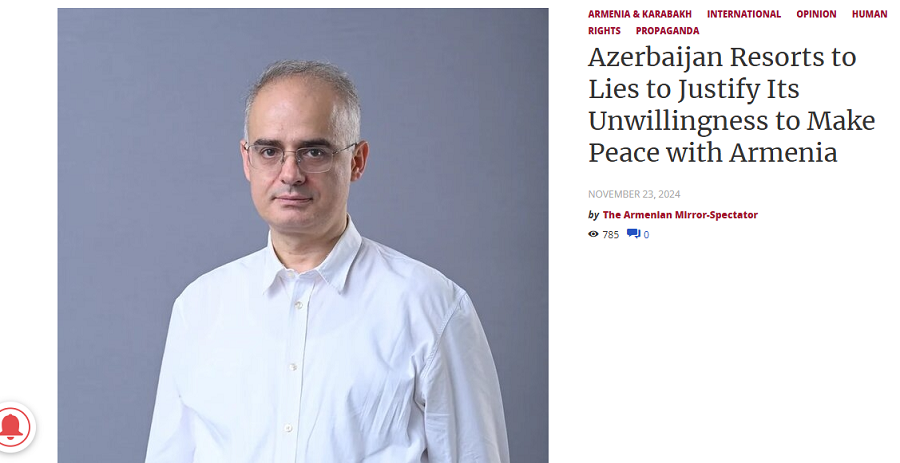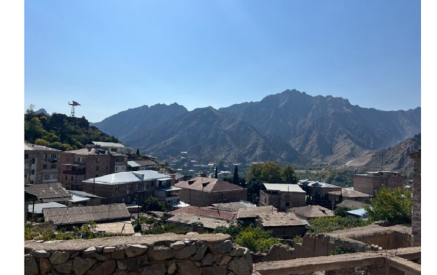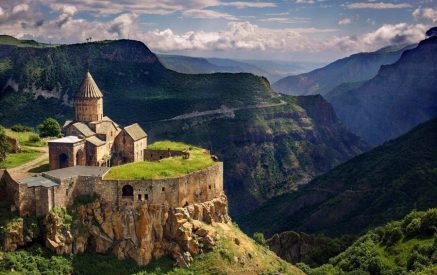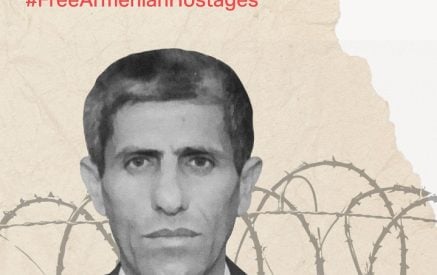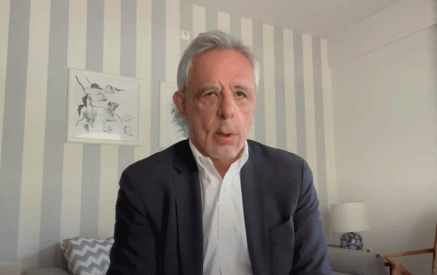By Levon Zourabian
Special to the Mirror-Spectator
The following op-ed is a response to an op-ed by Hikmet Hajiyev – the advisor to the president of Azerbaijan – which Newsweek had published on October 16, 2024. As I point out in it, Hajiyev’s op-ed was based on a blatant falsehood. One would think that a reputable newspaper like Newsweek would be eager to publish a rebuttal to such a piece if for no other reason than at least to safeguard itself from criticism of its standards. Not only did it refuse to publish it, but it also justified this by saying that it has already published a “handful of responses” to it, which, alas, are nowhere to be found.
Azerbaijan has secured the much-coveted right to host a high-level United Nations Climate Change Conference session, called COP29, in Baku on 11-22 November this year thanks to a diplomatic deal with Armenia, which saw the return of 32 Armenian PoWs from Azerbaijani prisons. The deal, reached on December 7, 2023, was back then seen by the international community as a step towards the final conclusion of a lasting peace between Armenia and Azerbaijan after decades of bitter conflict between two countries. Today, almost one year later and a few days before the conference starts, it is increasingly obvious, however, that Azerbaijan’s embrace of a diplomatic deal with Armenia was nothing more than tactical maneuvering aimed at cleaning the international posture of the country after multiple acts of aggression against Armenians since 2020.
Read also
With this aim, Azerbaijan has recently started a forceful propaganda campaign to picture the country as the one that spearheads the effort to establish long-lasting peace in the South Caucasus. The country that unilaterally broke a three-decade long ceasefire in 2020 and started a military campaign resulting in the deaths of thousands of soldiers and the complete ethnic cleansing of more than 100,000 Armenians from their historic homeland of Nagorno-Karabakh, as well as the seizure of 200 square miles of sovereign Armenian territory, now says it is ready for peace.
In a lengthy op-ed published in Newsweek on October 16, the foreign policy advisor to President of the Republic of Azerbaijan Hikmet Hajiyev states that “Peace is within reach” and continues: “Still, there remain major obstacles in our way. First is the Constitution of Armenia, which calls for a joining of Azerbaijan’s Karabakh region with Armenia. This constitutional revanchist claim has been an impediment to peace before: In 1996, Armenia’s then-president refused to sign the final declaration at an OSCE summit, arguing that the Armenian Constitution did not permit the signing of an international document recognizing Karabakh as part of the territory of Azerbaijan.”
Hajiyev’s assertion has no basis in reality and cannot be left unanswered. As someone who was closely involved in the negotiating process at the time and is well-informed about it, I feel compelled to set the record straight. Here are the real facts:
In 1996, during the OSCE Summit in Lisbon, President [of Armenia Levon] Ter-Petrossian made the following statement during the debate at the plenary session (full address can be found here): “It is our deepest conviction that if the Karabakh issue is resolved based on the principles proposed by Azerbaijan, the people of Nagorno-Karabakh will be under the permanent threat of genocide or forced expulsion. The experience of the anti-Armenian pogroms in Sumgait (February of 1988), Kirovabad (November of 1988), and Baku (January of 1990) as well as the expulsion of the inhabitants of 24 Armenian villages in Karabakh (May-June of 1991) makes it evident that Azerbaijan, despite all of its assurances, is not capable of providing security guarantees for the population of Nagorno-Karabakh. Thus, we believe that the only way of preventing a new tragedy is to respect the right of the people of Nagorno-Karabakh to self-determination.” As your readers can see, there is no mention of the Armenian Constitution in this statement.
The position of the Armenian delegation is also reflected in the final Lisbon Declaration of the summit as Annex II (page 16). While it speaks about the necessity to respect the right to self-determination of Nagorno-Karabakh and states that the proposed solution contradicts the 1992 decision of the OSCE Ministerial Council, it makes no reference to the Armenian Constitution here as well.
In fact, the Armenian Constitution has never been referred to by any Armenian delegation in the whole process of the negotiations with Azerbaijan over the Nagorno-Karabakh conflict.
On October 26 this year the Constitutional Court of Armenia ruled that the Armenian-Azerbaijani agreements on the delimitation of mutual border on the basis of 1991 internationally recognized boundaries do not contradict the Armenian Constitution, once again underlying that no provision in it can be interpreted as containing any territorial claims beyond those boundaries.
All of this clearly demonstrates that Azerbaijan resorts to easily refutable lies in order to justify its unwillingness to make peace with Armenia and to close this tragic page of the history of conflict and war in the South Caucasus once and for all.
Hajiev’s other arguments about impediments to peace are no better. His references to “the intensive militarization of Armenia by France and other Western countries” and “the chorus to release warlords who committed heinous crimes against Azerbaijani civilians” as the two other “major obstacles” on the way to peace are no more credible than the excuses about the Armenian Constitution. Whatever Armenia has acquired from France (and I know no other Western country that sells arms to Armenia) is aimed at rebuilding its defenses against an increasingly aggressive Azerbaijan. These acquisitions, incidentally, are dwarfed by what Azerbaijan is purchasing from Turkey, Israel, Italy, Serbia and Pakistan.
And it is not “the chorus to release” Armenian detainees that actually poisons the atmosphere between the two countries, as Hajiyev states, but the refusal by Azerbaijan to release all Armenian POWs in violation of the trilateral ceasefire agreement of November 9, 2020, torturing POWs and keeping the leaders of Nagorno-Karabakh in Azerbaijani prison only for their “crime” of exercising the right of the people of Nagorno-Karabakh to self-determination.
Azerbaijan has seized more than 200 square kilometers of sovereign Armenian territory in 2022, i.e. two years after the end of major hostilities in Nagorno-Karabakh; its official representatives routinely refer to Armenia as Western Azerbaijan sending alarming signals of revisionist intentions toward Armenia; its state propaganda is systematically fueling hatred toward Armenians; its regime persecutes political opponents, which sometimes even takes the form of kidnapping them from countries where they have found refuge or killing them; it violates human rights and basic freedoms of its citizens on a massive scale. Azerbaijan has now become the single most important threat to the security and democracy in the South Caucasus.
A true obstacle to peace.
(Levon Zourabian is vice chairman of the Armenian National Congress and former advisor and chief spokesman to the president of Armenia in 1994-1998)




















































